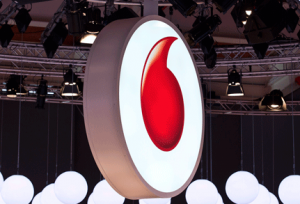
After more than 40 years of operation, DTVE is closing its doors and our website will no longer be updated daily. Thank you for all of your support.
Exclusive! Are aggregators having second thoughts about exclusivity?
 ‘Exclusive’ and ‘Original’ content have always been treated as the holy grail of the TV business. Across live sport, movies, scripted series and entertainment formats, the ability to invoke either of these charmed words has historically been used to justify higher subscription fees for consumers and firmer rate cards for advertisers.
‘Exclusive’ and ‘Original’ content have always been treated as the holy grail of the TV business. Across live sport, movies, scripted series and entertainment formats, the ability to invoke either of these charmed words has historically been used to justify higher subscription fees for consumers and firmer rate cards for advertisers.
Against this backdrop, it was intriguing to hear Vodafone head of group content and chain management Emma Jones tell delegates at the Connected TV World Summit in London that exclusivity is no longer a priority for the platform operator. “A few years ago in the PayTV market,” she said, “the mission was that it had be exclusive and had to be only place to get a particular content. But a lot has changed.”
There’s no question that exclusivity still has a crucial role to play for many media businesses – because without it their model is fatally flawed. What, for example, would be the point of DAZN, if it didn’t control exclusive must-have content? How would ITV make money if Love Island was also available on its commercial rivals? The fact that streamer Apple TV+ has this week been linked a potential bid for English Premier League and EFL soccer rights in the UK simply serves to underline the point.
But non-exclusive content has also emerged as a more credible option in recent months. In part, this is because it dovetails neatly with the boom in FAST channels. But it also plays into the current narrative around profitability over growth.
For Vodafone, which is battling to control a mountain of debt, stepping back from the highly-inflationary area of exclusive content acquisition might make sense. Instead, it can focus on being the best access point to content. As Jones told her audience: “We have reached the conclusion of let’s get everything in one space and get as much as we can. The goal is to be super-aggregated and not necessarily chase exclusivity.”
This notion of platforms as content aggregators has always been there historically. But it has reasserted its significance as more and more siloed streaming platforms have entered the market. While the traditional role of platforms as providers of linear channels has been eroding, their EPGs have increasingly become a key tool for navigating through a complicated labyrinth of linear, catch up, streaming and social first platforms. For many in the UK, for example, Sky continues to act as a gateway for accessing platforms such as Netflix, Disney+, Paramount+ and Amazon Prime; and surfacing new streamer shows as they are launched. Last week, Sky further pimped up its aggregator credentials by adding DAZN to its mah jong set of streamer tabs.
What’s more, the era of Connected TV changes the traditional dynamic, so that the new era of aggregators are more than just channel bundlers. They are gatekeepers to transactional TV, audience data, search, shoppable services and more.
The shift towards an aggregator-led model varies market by market and company by company. Sky, for example, has launched Sky Glass (an aggregator play). But it has also ramped up UK scripted production in recent years (partly for its own channels, but also for global distribution, keeping in mind that it is part of the many-tentacled Comcast). And it is still a purchaser of exclusive content for its sports channels. But it will be interesting to see if Sky still regards direct ownership of live EPL rights as crucial to its business model when the next tender process (2025/2026 onwards) opens in late 2023. The point being that exclusivity retains importance in some scenarios, but increasingly looks like an expensive luxury in other contexts.
If PayTV platforms (satellite, cable and telco) increasingly position themselves as super aggregators of content and services rather than owners of exclusive rights, it means they can take some of the heat out of their expenditure on content. It may also diminish the sense they are competitive with the streamers they carry.
But such a move does present other considerations – since TV manufacturers and big tech are also lining up as would be aggregators. Samsung launching yet more FAST channels, Amazon rolling out QLED TV sets and Deutsche Telekom talking about launching TV sets are all manifestations of this quest to be the gatekeeper to audiences. Exclusive content or aggregation – both come with their challenges.


